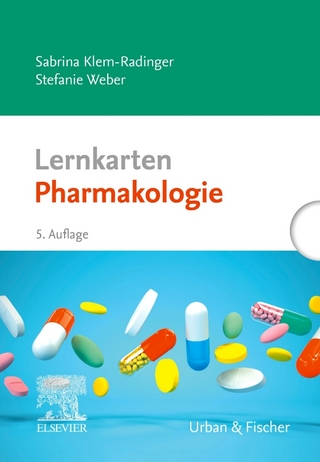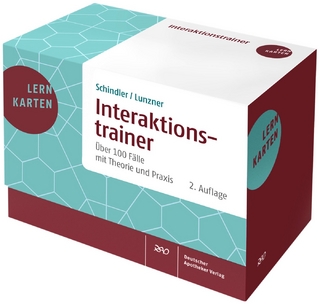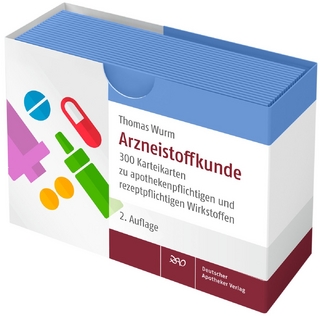
Drug Discovery and Evaluation: Methods in Clinical Pharmacology
Springer International Publishing
978-3-319-68863-3 (ISBN)
This is the second edition of a well-received book in the series "Drug Discovery and Evaluation" The completely revised new edition of the volume reflects the current state of the art in Clinical Pharmacology.
Drug Discovery and Evaluation has become a more and more difficult, expensive and time-consuming process. The effect of a new compound has to be detected by in vitro and in vivo methods of pharmacology. The activity spectrum and the potency compared to existing drugs have to be determined. As these processes can be divided up stepwise we have designed a book series "Drug Discovery and Evaluation" in the form of a recommendation document. Clinical pharmacokinetics are performed in parallel with human studies on tolerability and therapeutic effects. Special studies according to various populations and different therapeutic indications are necessary. These items are covered in the third volume: "Methods in Clinical Pharmacology".
For the 2nd edition of this volume, the chapters have been revised and completely updated. A large number of assays were added. New chapters were included, such as pain, addiction, gene therapy, orphan diseases.
Since retiring from Aventis in 2002, Dr. Franz Jakob Hock has leveraged his experience as a freelance consultant specializing in Safety Pharmacology. Dr. Hock was a research scientist at Hoechst, Hoechst Marion Roussel and Aventis from 1976 - 2002. He lectured for several years at the University of Kassel und the Technical University of Darmstadt. Currently he is a member of the Task Force General/Safety Pharmacology German/Swiss Pharmaceutical Companies and a member of the Program Committee of the Safety Pharmacology Society. Michael R. Gralinski, Ph.D. Chief Executive Officer, Co-Founder (CorDynamics). Mike is the Chief Executive Officer and Co-Founder of CorDynamics, a cardiovascular contract research organization and consulting group in Chicago. Along with his partners, Mike started CorDynamics in 2003 and since then the company has grown into a leading provider of nonclinical cardiovascular services for more than 300 international biopharmaceutical clients. Mike also has extensive management experience working for several pharmaceutical organizations including Warner-Lambert/Parke-Davis, G.D. Searle, Monsanto, Pharmacia, and Pfizer. His past responsibilities included directing product safety and toxicology operations, leading resolution efforts for cardiovascular issues involving discovery, development, and marketed compounds including Rezulin, Celebrex, and other COX-2 inhibitors, as well as cultivating relationships with international colleagues throughout small and large biopharma. He was involved in the genesis of the Safety Pharmacology Society and has been elected to multiple positions on its Board of Directors including Treasurer, Vice-President, and President. Mike earned his B.S. in Pharmacology & Toxicology at the University of Wisconsin-Madison and Ph.D. in Pharmacology at the University of Michigan.
Section A Introduction: 1 General Introduction; - Section B Human Studies in Clinical Pharmacology: 2 Methodologies of Safety Assessment in Clinical Pharmacology; - 3 Pharmacodynamic Evaluation: Cardiovascular Methodologies;- 4 Pharmacodynamic Evaluation: Pulmonary Methodologies;- 5 Pharmacodynamic Evaluation: CNS Methodologies;- 6 Pharmacodynamic Evaluation: Pain Methodologies; - 7 Pharmacodynamic Evaluation: Drug Dependency and Addiction;- 8 Pharmacodynamic Evaluation: Ocular Pharmacology; - 9 Pharmacodynamic Evaluation: Acoustic Pharmacology (Tinnitus); - 10 Pharmacodynamic Evaluation: Diabetic Methodologies;- 11 Pharmacodynamic Evaluation: Gastroenterology; - 12 Pharmacodynamic Evaluation: Endocrinology;- 13 Pharmacodynamic Evaluation: Inflammation/Immunology; - 14 Pharmacodynamic Evaluation: Dermatology;- 15 Pharmacodynamic Evaluation: Infectious Diseases;- 16 Pharmacodynamic Evaluation: Oncology;- 17 Pharmacodynamic Evaluation: Gentherapy;- 18 Pharmacodynamic Evaluation: Orphan Diseases; - 19 Clinical Studies in Infants (Pediatric Pharmacology); - 20 Clinical Studies in Geriatric Population; - 21 Personalized Medicine;- 22 Non-invasive Methodology (NMR);- 23 Traditional Chinese Medicine; - 24 Pharmacodynamic Evaluation: Herbal Medicine;- 25 Nanotechnology in Medicine;- 26 Methodologies of PD Assessment Scales;- 27 Methodologies of Pharmacodynamic Assessment;- 28 Pharmacodynamic Drug-Drug Interaction. Section C Clinical Pharmacokinetics: 29 Dose Finding in Single Dose Studies by Allometric Scaling;- 30 Multiple Dose Studies;- 31 Dose Linearity and Proportionality;- 32 Effects of Food Intake;- 33 Special Populations: Profiling the Effect of Obesity on Drug Disposition;- 34 Special Population: Renal Impairment;- 35 Special Population: Hepatic Impairment; - 36 Special Population: Protein Binding Aspects;- 37 The Human ADME Study;- 38 Synthesis of Radiolabeled Compounds for Clinical Studies;- 39 Drug-Drug Interaction Studies;- 40 In Vitro/In Vivo Correlation for Drug-Drug Interaction;- 41 Specific Studies for Formulation Development;- 42 Absolute and Relative Bioavailability;- 43 Bioequivalence; - 44 Population Pharmacokinetics in Clinical Pharmacology;- 45 Bioanalysis of Clinical Studies;- 46 Biomarker Definition and Validation During Drug Development;- 47 Toxicokinetics and Safety Ratios;- 48 In Vitro/In Vivo Correlation for Transporters;- 49 Relevance of Transporters in Clinical Studies; 50 Specificities for Oncology Studies;- 51 Pharmacogenomics in and its Influence on Pharmacokinetics;- 52 PK/PD Approaches. Section D Regulations: 53 Regulatory Guidance: EMA, FDA, ICH;- 54 Development of Regulations for Submitting Pharmacogenomic Data to Authorities; - 55 Pharmacogenomic-Guided Drug Development;- 56 Clinical Quality Management System
| Erscheint lt. Verlag | 14.7.2020 |
|---|---|
| Reihe/Serie | Drug Discovery and Evaluation: Methods in Clinical Pharmacology |
| Zusatzinfo | XXIII, 1190 p. 249 illus., 179 illus. in color. In 2 volumes, not available separately. |
| Verlagsort | Cham |
| Sprache | englisch |
| Maße | 178 x 254 mm |
| Gewicht | 2689 g |
| Themenwelt | Medizin / Pharmazie ► Medizinische Fachgebiete ► Pharmakologie / Pharmakotherapie |
| Medizin / Pharmazie ► Pharmazie | |
| Naturwissenschaften ► Biologie ► Biochemie | |
| Schlagworte | Arzneimittel • assays • biochemistry • Biomedical and Life Sciences • Clinical Pharmacology • Drug Action • Drugs • medical biochemistry • Medical Research • Pharmacodynamics • Pharmacokinetics • pharmacology • Pharmacology/Toxicology • pharmacotherapy |
| ISBN-10 | 3-319-68863-4 / 3319688634 |
| ISBN-13 | 978-3-319-68863-3 / 9783319688633 |
| Zustand | Neuware |
| Haben Sie eine Frage zum Produkt? |
aus dem Bereich


